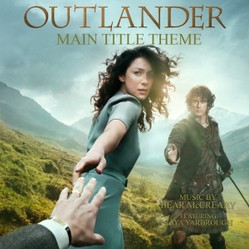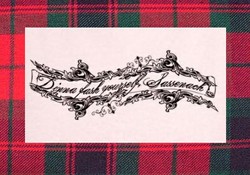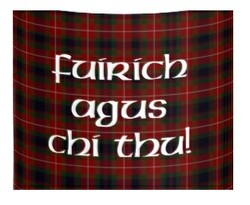Thus began the reign of James's children. First Mary, along with her husband William of Orange, then Ann. But both died without heirs. Faced with an empty throne, the English Parliament invited Hanoverian King George to be their monarch.
When the Scottish protested, a series of events was kicked into being, which resulted in the country aggressively being forced into the United Kingdom. All the riots in Edinburgh, Glasgow and many other major towns and cities were ignored, and the Scots were told accept George or be destroyed.
It was at this point that many people remembered that a parallel royal line was being raised across the ocean. James VII/II was dead, but his son survived. The crowning of the erstwhile James VIII/III was the goal of the Jacobite movement.
History tends to recall that lazily as Scottish Jacobites versus English Hanoverians. It wasn't quite that simple, as the Jacobites included Scots, Irish, English, Welsh and many from other nations too. Nor were all of the armies raised in defense of the Georgian kings solely English.
But overwhelmingly the sides ultimately arrayed at Culloden were Highland Scots under the command of Prince Charles - son of uncrowned James VIII - versus a Hanoverian army mostly made up of men from the English East Midlands, led by William, Duke of Cumberland.
What followed was a massacre. A mixture of Scottish tactical errors, and superior fireman strategies by Cumberland's troops, led to thousands of Highlanders dead or desperately injured on Drumossie Moor. It would be the last pitched battle on British soil, but also one of its most dreadful and dishonorably staged.
That dire accolade came not so much with the battle itself, but its immediate aftermath. Cumberland's army rode roughshod over centuries worth of tradition and normal etiquette of war. None were allowed to carry their dead and injured from the field. Next morning, those who'd survived the night were systematically slaughtered in cold blood where they lay.
Scots who hadn't even been there - nor necessarily shared Jacobite sympathies - were nonetheless hunted down in homes, streets and fields. Homesteads were rifled for valuables, then set alight. Crops were destroyed where they grew; stockpiles and storage barns too. Women were sexually abused, and children treated like mini-Jacobite warriors.
Random Highlanders were executed, deported or locked up for years in prison. A series of highly punitive laws were passed in Westminster, rendering illegal much of the ancient Scottish culture. It sounded a death knoll for the clan system, which had been in place for countless centuries.
Even today, over two and a half centuries later, the memory of Culloden not only holds fast, but invokes much emotion in Britain. It goes without saying that this sentiment is most keenly felt in Scotland, especially in the ravaged Highlands.























 St Tydecho's Churches in West Waleson 09/03/2014
St Tydecho's Churches in West Waleson 09/03/2014
 Goodies for an Outlander Premiere Partyon 03/06/2015
Goodies for an Outlander Premiere Partyon 03/06/2015
 Holocaust Memorial Day Interview with Rainer Höss, Grandson of Rudolf Architect of Auschwitzon 01/24/2015
Holocaust Memorial Day Interview with Rainer Höss, Grandson of Rudolf Architect of Auschwitzon 01/24/2015
 Romantic Valentine Gifts for an Outlander Fanon 01/16/2015
Romantic Valentine Gifts for an Outlander Fanon 01/16/2015



Comments
What about the revolution song ? They are all incredible songs.
Glad to have been of service. It's a beautiful song and entirely fitting to the story. I never fast forward it. :)
This is such a pretty song. It get's stuck in my head for a bit after every episode I watch. My mom skips it every time she watches an episode. Nuuuuu.
Anyways, I had started to wonder where they got the song, or if it'd been written just for the show. It's neat to learn some of the history behind it. :)